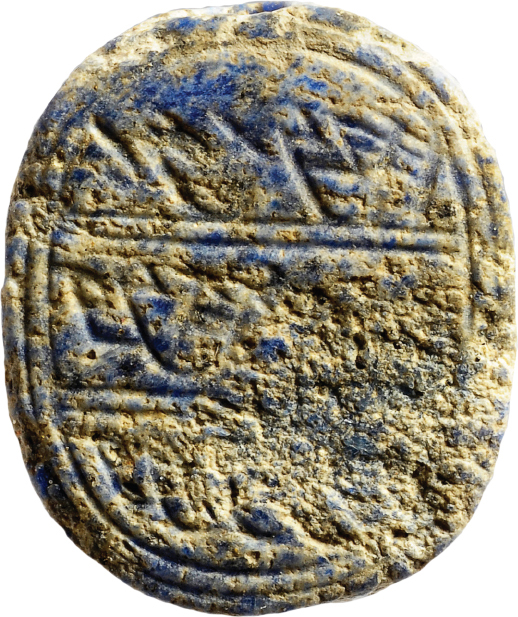Understanding World Societies:
Printed Page 52
Chapter Chronology

Hebrew Seal
Archaeologists found this stone seal in 2012 while unearthing an ancient drainage channel in central Jerusalem. Dating from the seventh or sixth century B.C.E., the tiny seal would have been set in a ring and used for signing letters. The inscription reads, “Belonging to Matanyahu . . . ,” a name that is found in Hebrew Scripture and is very close to the name of the current prime minister of Israel, Benjamin Netanyahu. (Bible Land Pictures/akg-images)
TThe legacy of another people who took advantage of Egypt’s collapse to found an independent state may have been even more far-reaching than that of the Phoenicians. For a period of several centuries, the Hebrews controlled first one and then two small states on the western end of the Fertile Crescent. The Hebrews created a new form of religious belief, a monotheism based on the worship of an all-powerful god they called Yahweh (YAH-way). Beginning in the late seventh century B.C.E. the Hebrews began to write down their religious ideas, traditions, laws, advice literature, prayers, hymns, history, and prophecies in a series of books. These were gathered together centuries later to form the Hebrew Bible. These writings later became the core of the Hebrews’ religion, Judaism. Jews today revere these texts, as do many Christians, and Muslims respect them, all of which gives them particular importance.
